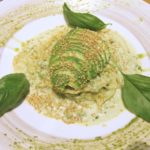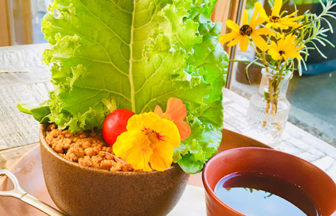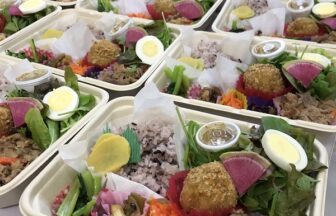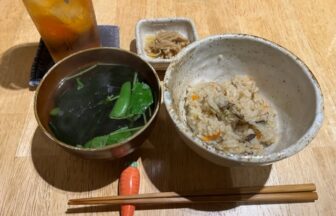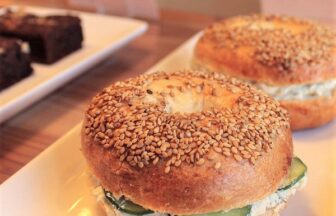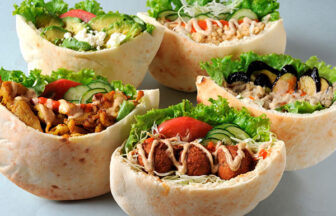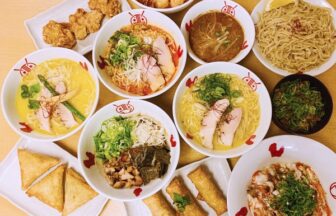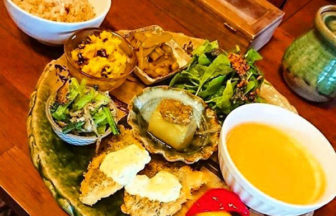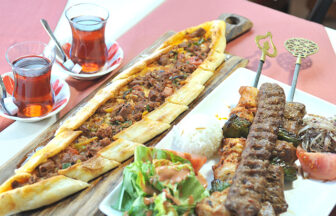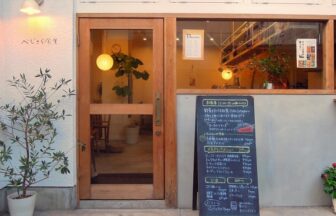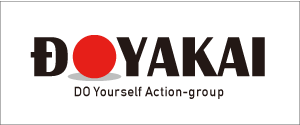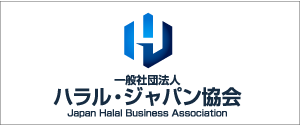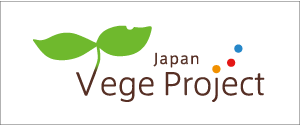A popular Japanese soba noodle chain with an atmosphere like a private home in Shinshu.
Shinshu Soba Restaurant SOJIBO is a popular Japanese soba chain-restaurant that operates nationwide. It is characterized by its authentic style of eating homemade noodles with freshly grated wasabi, which is rare for a chain restaurant, and many people in Japan have probably visited it at least once.
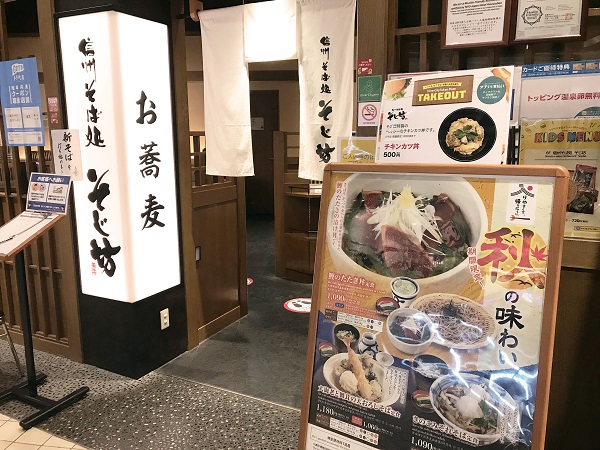
SOJIBO Diver City Tokyo Plaza
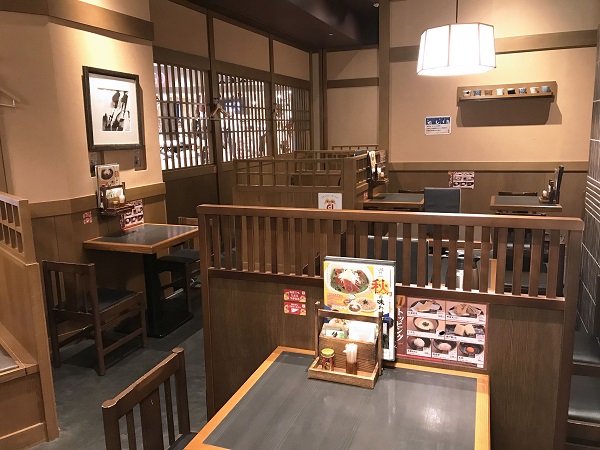
Inside the restaurant
In addition to the soba menu, the restaurant offers a wide variety of Japanese dishes and set menus, including Shinshu’s local cuisine, rice bowls, and tempura.
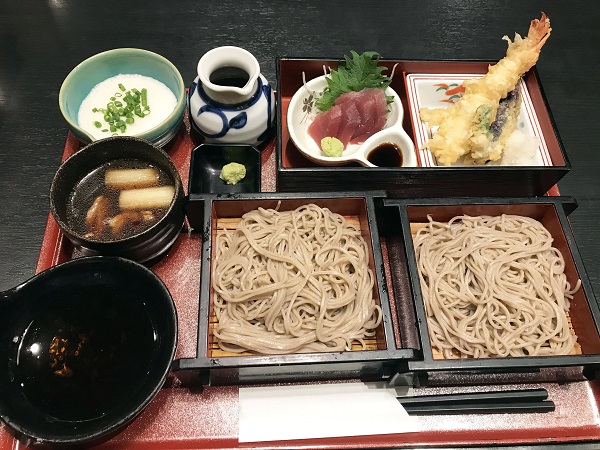
Futami Soba Gozen 1,820 yen
Tempura is freshly fried and crispy, and the thin soba noodles are glossy and have just the right amount of firmness to go down your throat, and goes well with the refreshing soba soup.
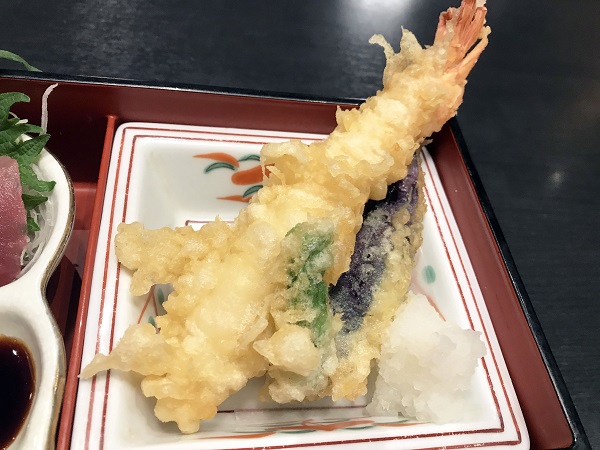
Tempura
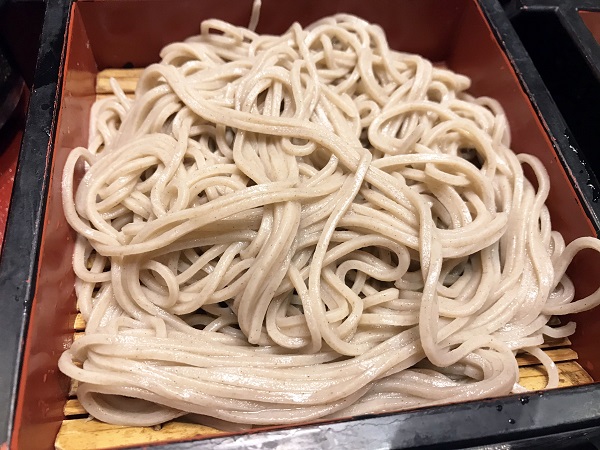
buckwheat noodles
There are also set meals with rice bowls for less than 1,000 yen, and the price is the same as a regular soba restaurant despite being located in Odaiba, one of the most popular tourist spots in Tokyo.
The restaurant is located in a commercial facility where you can enjoy shopping and gourmet food, and as befits the name Diver City Tokyo Plaza, all menu items are in English, allergies are indicated, power outlets are available, and the restaurant is barrier-free and Halal-friendly.
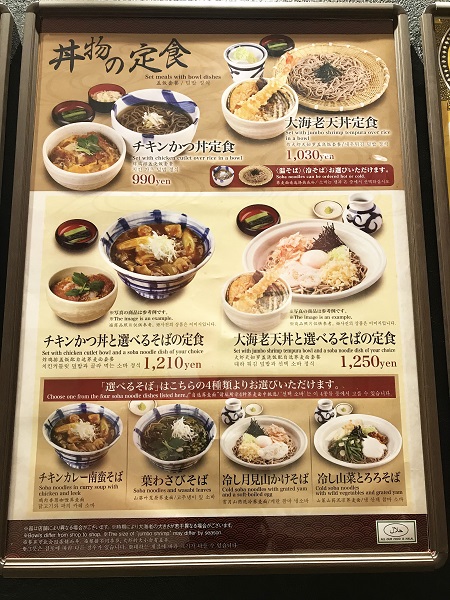
Set meal menu with rice bowl
At Sojibo Diver City Tokyo Plaza, all meals are Halal, so there is no pork in the menu (such as katsudon which is popular in soba restaurants).
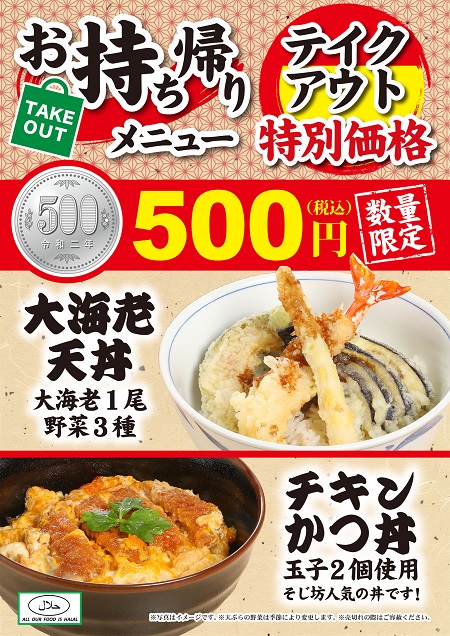
500 yen Take-out menu (from the store’s Facebook page)
In addition to the ingredients used in the menu, the seasonings are also Halal. In particular, many of the seasonings used in Japanese food, such as soy sauce and mirin contain alcohol. They do not use such seasonings in their dishes.
Switching of such seasonings tends to be rather expensive, but some of the takeout menus are only 500 yen! It is a great thing for Muslims to be able to enjoy delicious Japanese food at such a price range.
Freshly fried crispy tempura and homemade soba noodles are all Halal.
Gourmet Kineya Restaurant Co., Ltd. which operates SOJIBO offers Halal meals at several locations in Japan, including airports. The Diver City Tokyo Plaza branch is one of them. A certificate and explanation of Halal compliance is posted at the entrance of the restaurant.
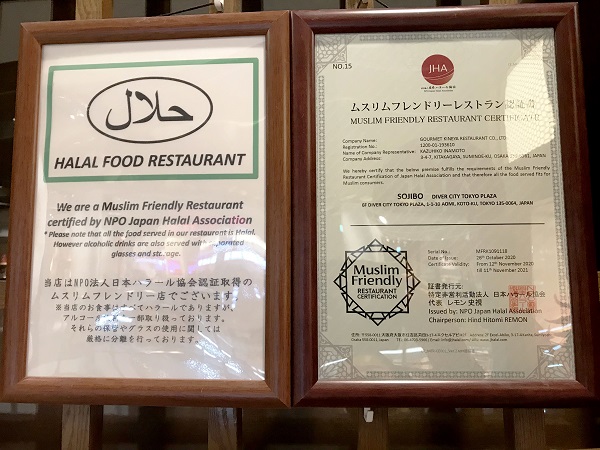
Halal food description and certificate
Have you ever wondered what this Halal mark is? To put it simply, it is a confirmation by a Halal certification organization that a restaurant has met the Halal standards. However, since there is no unified global standard for the Halal certification system, each country and each certification organization has its own criteria and guidance.
In addition, Japan has a menu certification and a Muslim-friendly certification, so there are some complications.
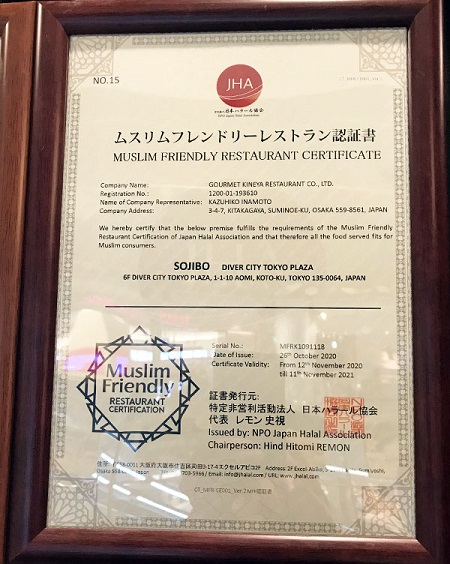
Muslim Friendly Restaurant Certificate
The Muslim Friendly Restaurant Certificate issued by the Japan Halal Association (NPO) means that all meals at particular restaurant are Halal. Muslim Friendly Certification is a customized certification standard and partial certification that takes into consideration the circumstances of each country.
In order to achieve a Halal level of service in Japan, which is in full compliance with Islamic law, it is necessary to avoid not only pork and alcohol, but also all Haram items.
In countries with large Muslim populations, this may be quite normal, but in Japan, a non-Muslim country, it is not easy to meet all the standards. This is why the Muslim Friendly certification was developed, which certifies that some facilities and menus meet certain Halal standards. This type of certification is often seen in hotels, cafeterias, and restaurants in Japan, and has different standards from the Halal mark printed on food.
For example, if you want to obtain Halal certification for an entire restaurant, you are basically not allowed to serve alcoholic beverages such as beer. Also, the elimination of pig ingredients are necessary. But, if you have Muslim Friendly certification, you can serve alcoholic beverages.
However, it is assumed that the system will not mix Halal and No Halal so that alcohol will not be served with Halal meals. At SOJIBO Diver City Tokyo Plaza, they have a system in place to control the Halal status even in invisible areas, such as separating the glasses for alcoholic beverages from those for soft drinks and conducting employee training.
Supervisor / Recommender

- Halal Supervisor and Foreigner Food Coordinator (Cooking, Consulting, Public Relations)
-
Click here for introduction
I currently work as an editor, but my previous job was as a chef, with many years of experience working in hospitals, restaurants, and the food service industry. Looking back, I think my connection to halal may have already been there.
Decades ago, I once worked in a cafeteria at an auction venue. Over 60% of the visitors were foreigners. Many Muslims were present, and the venue had a mosque-like prayer space. I remember being frequently asked questions about whether the meat was halal and what kind of meat it was. At certain times, the cafeteria would become as lively as a festival. The Indian restaurant next door would generously serve free biryani, curry, and sweet drinks to everyone who came. Over 100 people, including people wearing bright red turbans, galabeyas, and traditional attire, gathered in the cafeteria, all sitting around the same table and enjoying a truly enjoyable time. Looking back, it was iftar, the end of fasting, and I understand the significance of sharing, but at the time I was ignorant of halal and Islam, and didn't even consider how to respond. They only ate the curry made by the Indians in the restaurant. As I studied halal, I realized, "I wanted to eat Japanese food, but I couldn't." I regret not doing anything even though there was something I could have done.
If only it didn't contain pork! If only it didn't contain wheat or buckwheat! I could eat it... Food insecurity is different for each person.
That's why I think it's important to learn about the differences in culture, religion, and lifestyle that underlie it, and to create an environment where everyone can enjoy delicious meals in comfort.
The desire for delicious, safe, and secure food is universal. The times are calling for people to live in new ways that transcend borders and religions. I hope that halal can be a gateway to eliminating food insecurity, contributing even in some small way to a society where people can coexist and prosper with more liberal thinking, and to global harmony beyond.
Latest entries
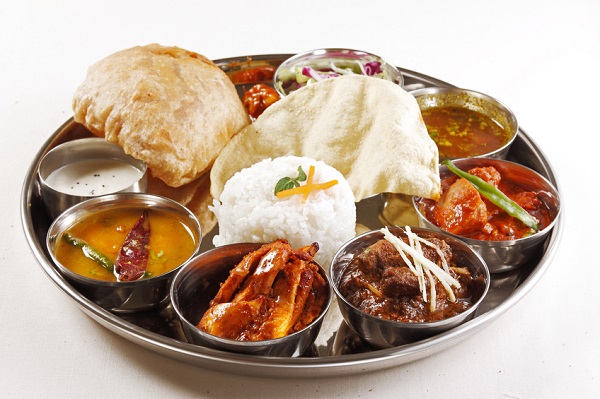 Tokyo2023年11月4日Dakshin South Indian Restaurant Otemachi Branch
Tokyo2023年11月4日Dakshin South Indian Restaurant Otemachi Branch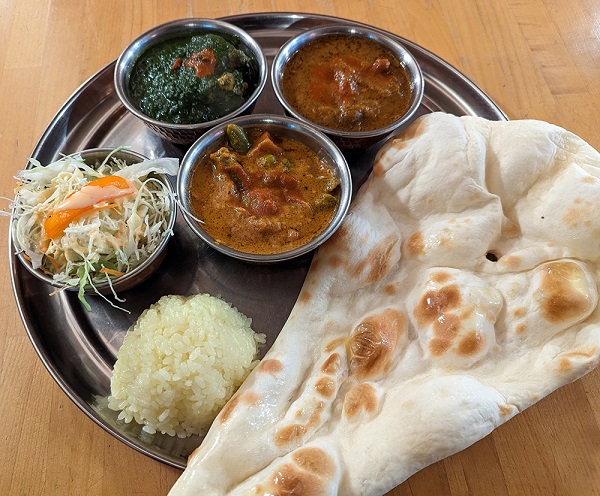 Tokyo2023年10月23日Gandhi Mahal
Tokyo2023年10月23日Gandhi Mahal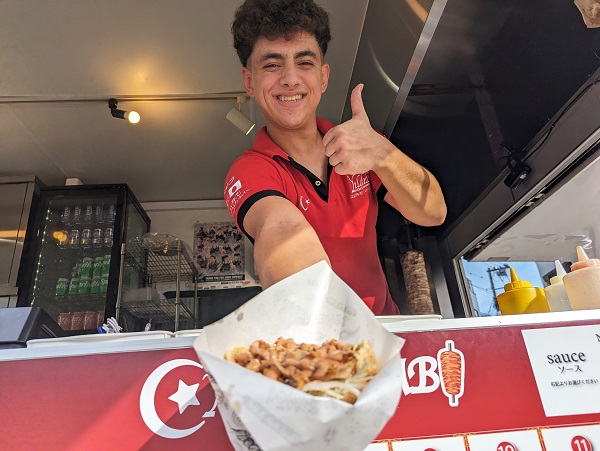 Tokyo2023年10月23日Yıldız KEBAB
Tokyo2023年10月23日Yıldız KEBAB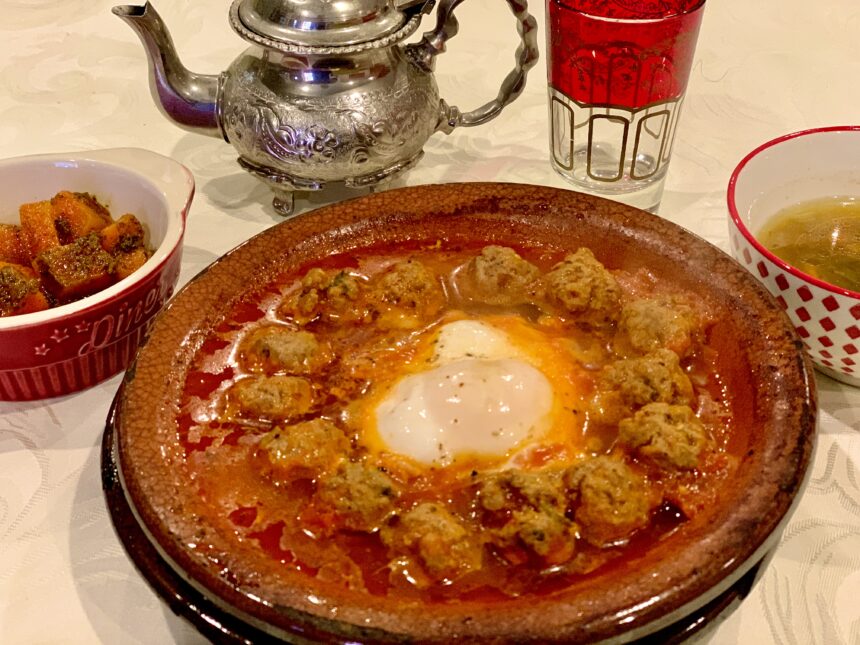 Tokyo2023年10月4日Restaurant Morocco
Tokyo2023年10月4日Restaurant Morocco













